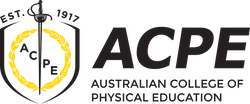Are you looking for a job that is interesting, challenging and where you’ll get to learn something new every day? If so, consider a career in science. You’ll find all you need to know about this fascinating industry as well as a range of quality science courses on offer to help start your journey to an exciting and rewarding career below.
Browse Science Results
Online Science courses also available
What is Science?
Science is the study of the natural and social worlds and encompasses a broad range of disciplines, such as medical, health and social sciences, ecology, geology, oceanography and environmental science.
Scientific studies can include conducting observations, collecting evidence and measuring data, as well as formulating theories and publishing findings. Scientists can also work in a hugely diverse range of roles, including those related to research, education, manufacturing, mining, agriculture and conservation.
Jobs in the field of science can include any of the following:
- Laboratory Technician
- Astronomer
- Climate Change Analyst
- Hydrologist
- Food Scientist
- Geographer
- Soil Conservationist
- Science Teacher
Science in Australia
Australia is home to some of the world’s most unique plants, animals and ecosystems, which every year draws thousands of scientists from all over the world. We also boast the world’s largest biotech sector (in terms of its percentage of the nation’s GDP), which is now worth more than $93.7 billion.
The Australian Government invests approximately 2.1% of its GDP into scientific research and development each year –which is the 9th highest rate in the world– and there are now tens of thousands of scientists working nationwide, including roughly 7,000 geologists, 8,000 physicists, and 16,000 science technicians.
Most science professionals work regular business hours; however, their rate of pay varies considerably depending on the role. For example, science technicians bring home roughly $60,424 every year, environmental scientists make approximately $78,000, while geologists earn an average of $121,732.
Science Courses in Australia
Any successful career in science starts with a quality education and you’ll find a wide range of fantastic options here at tafecourses.com.au, from multi-year science degree programs in your local area right through to online science courses.
Certificate
Those looking for an introduction to the industry or perhaps even a bridging program into higher level studies will benefit best from a certificate in science. These popular training courses will provide a solid foundation in a wide range of science subjects –such as physics, chemistry and biology– whilst enhancing knowledge of the science industry. Best of all, most certificate courses can be completed in as little as twelve months and are available both in-class and online.
Diploma
Diploma level courses delve deeper into both the theory and practice of science and will provide a direct pathway towards a bachelor degree. You’ll learn about a variety of scientific tools, techniques and terminology; master the art of research, writing and observation and polish up your lab skills under the guidance of a fully qualified industry expert. Students can also focus on an area of personal interest, such as genetics, pharmacology or molecular biology.
Bachelor Degree
If you’d like to advance beyond entry-level roles consider investing in a Bachelor of Science, as these comprehensive science degree programs will provide you with the specialised knowledge and skills needed to enter the industry with confidence. For example, a Bachelor of Health Science will examine everything from anatomy and physiology to psychosocial issues, whereas a Bachelor of Social Science will include a strong focus on social dynamics, culture and society. You can choose to study your science degree online or in-class and with a Bachelor Degree under your belt, you’ll be ready to thrive in almost any scientific role, including working for cutting-edge organisations such as CSIRO and Geoscience Australia.
Graduate Diploma
Due to the specialised nature of science- related industries, many students undertake postgraduate studies in a particular area to ensure they have the highly- adept skills and knowledge needed to develop a successful career in science. A Graduate Diploma of Science covers a broad spectrum of different fields of specialisation, depending on your area of interest. For instance, a Graduate Diploma of Science may major in areas of astronomy, statistics, energy, research or Earth science. Graduate Diplomas can take between a year to two years to complete, with many available online to provide added convenience to students.
Career Prospects in Science
The federal government’s renewed focus on topics related to science, technology, engineering and maths (STEM) will open a broad range of opportunities in terms of career prospects.
For example, Australia’s Medical Research Future Fund recently announced that it will invest $784 million into new research over the next four years, whilst the renewable energy sector alone is tipped to create as many as 28,000 additional jobs.
Is a Career in Science Right for You?
To enjoy a successful career in science you will need to have a curious mind, a deep fascination with the social and natural worlds, as well as a knack for thinking outside of the box. Clear communication, attention to detail and above-average mathematical skills are also a must, as is the ability to stay focused while working on even the most tedious tasks.
Skills and talents in the following areas will also certainly help:
- Research
- Observation
- Analysis
- Classification
- Writing
- Data collection
If all this talk about science has you itching to get into the lab, you’ve come to the right place. Simply find the science course that suits your style and schedule best, sign up, and get ready for a career unlike any other.





